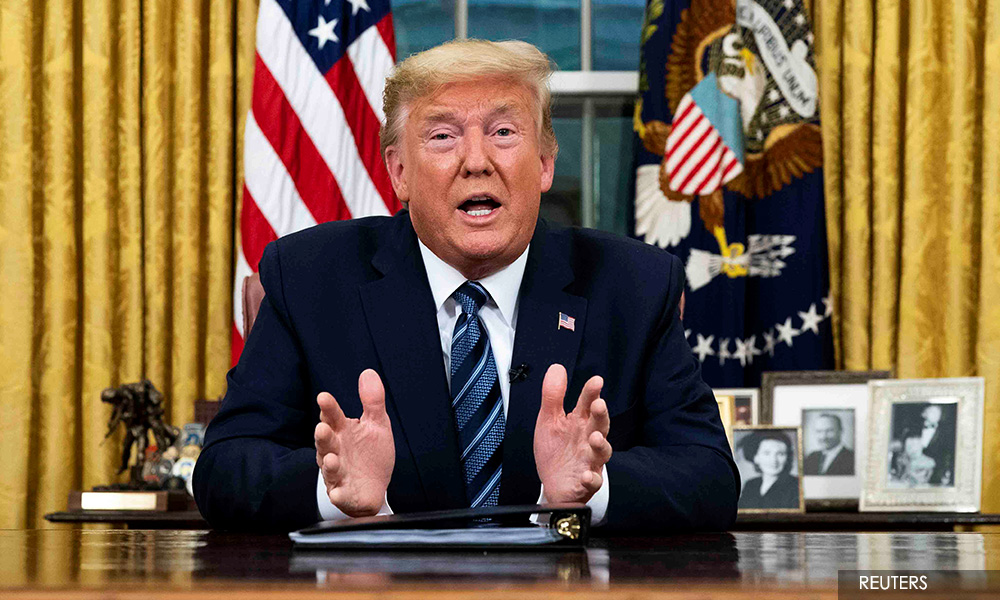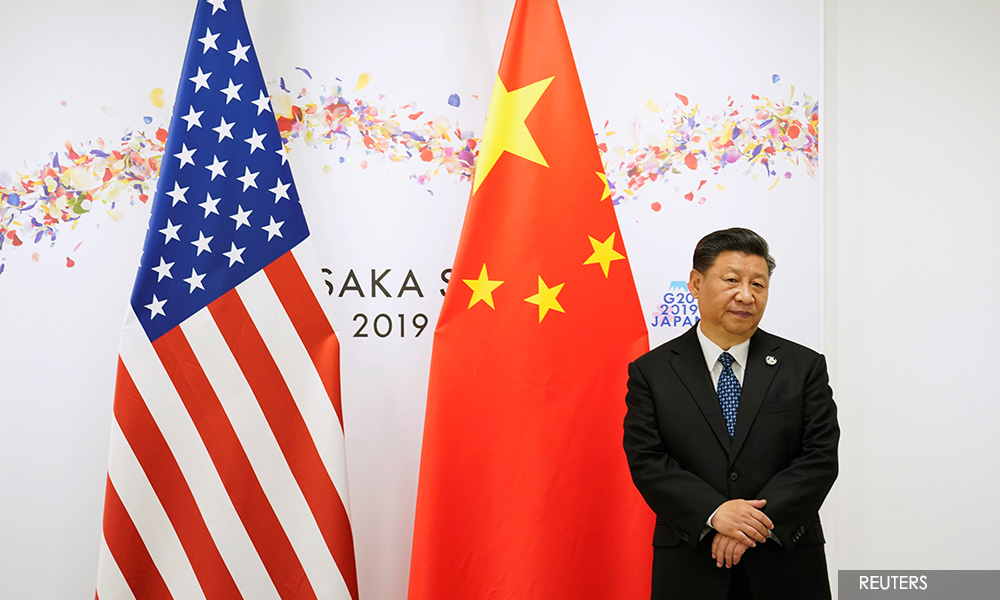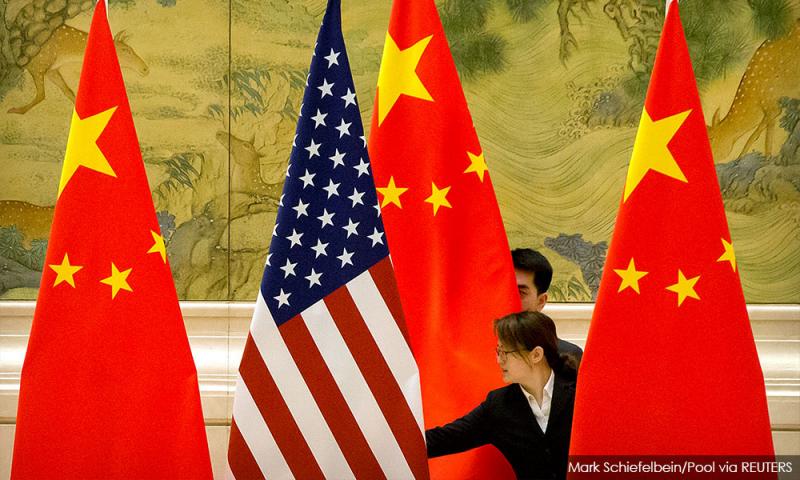Trump risks blowback from war of words with China over coronavirus
US President Donald Trump and some top aides have repeatedly excoriated China over its handling of the coronavirus pandemic, a stance that even some in his administration worry could bring a dangerous backlash from Beijing.
While Trump himself softened his tone after a week of blaming what he called the “Chinese virus” for the human and economic toll of the disease, Secretary of State Mike Pompeo on Wednesday had harsh words for the Chinese, accusing them of an “intentional disinformation campaign.”
Increasing strains in US-China relations have raised concerns at a time when experts say an unprecedented level of cooperation is needed to face the crisis and deal with its fallout.
“The US and China are engaged now in a demonisation contest,” said Daniel Russel, who served as the State Department’s top Asia adviser until early in Trump’s term.
“That inevitably hinders badly needed cooperation.”
At risk also is Trump’s hard-won trade deal between the world’s two biggest economies, a key plank of his 2020 re-election campaign.
While Washington and Beijing have so far mostly been waging an escalating war of words, the Trump administration has raised the prospect of turning rhetoric into action, which could further ratchet up tensions.
White House trade adviser Peter Navarro, a leading China hawk, is crafting a new “Buy America” executive order aimed at reducing US reliance on Chinese-made pharmaceuticals and other medical supplies.

China, which has matched US recriminations over the virus, has warned that such a move would be unwise and unrealistic.
An article carried by the official Chinese news agency Xinhua said the world should thank China, rather than blame it, and warned if Beijing were to ban the export of drugs, “the United States would sink into the hell of a novel coronavirus epidemic.”
Treasury Secretary Steven Mnuchin is leading a faction within the administration opposed to Navarro’s initiative, said a senior US official on condition of anonymity. Internal dissent is based on concerns that now is not the time to antagonise China when its help is needed to fight the pandemic and keep the global economy afloat.
The White House did not immediately respond to a request for comment.
US-China tensions cloud G20
Friction between the United States and China is expected to overhang a video conference of the Group of 20 major economies on Thursday to discuss the pandemic, which has upended life and sent economic shockwaves around the globe.
With his pronouncements, Trump has whipsawed back and forth in how he has characterised China’s role.
After initially commending China for “doing a very professional job” fighting the virus, Trump ratcheted up his rhetoric last week, saying “the world is paying a very big price for what they did” and accusing Beijing of covering up the outbreak’s early stages in the Wuhan province. But Trump’s language softened again this week as he offered further praise for Chinese President Xi Jinping, describing him as a “friend.”
Pompeo, meanwhile, has become the public face of the anti-China camp. He called the disease the “Wuhan virus” on Wednesday, using a term that angers China, and said Beijing needs to be more transparent.
In Beijing, foreign ministry spokesperson Geng Shuang said China had shared information and urged Washington to “cease politicising the epidemic.”
Despite Pompeo’s tough talk, another US official said that unless Trump or his surrogates take direct aim at Xi (below), something they have yet to do, relations could still be salvaged.

Trump this week has regularly touted his trade deal with China, pointing out that Beijing’s is moving ahead with its promised agricultural purchases considered crucial to his electoral prospects in farm states.
China has its own levers if it chooses to retaliate, not only on possibly slow-walking implementation of the trade deal but by using its position as a key supplier of medical goods to the United States.
Republican Senator Marco Rubio said in an op-ed last month that in 2018, the US imported more than US$12.7 billion worth of pharmaceuticals and antibiotics, medical devices, and food products from China, not including organic chemicals used to create pharmaceutical products.
Navarro last week said he hoped to finish work on the executive order, but it has not been advanced amid a flurry of warnings from US health experts who fear China could respond by slowing shipments of medical equipment. The senior US official said the decree was “still in process.”
“In normal times, I would agree that it is important for the United States to have its own capacity to produce ventilators, masks and other medical equipment,” said Matthew Goodman, a senior fellow at the Center for Strategic and International Studies.
“But this is not the moment to considering a policy like this.”
- Reuters
RM12.50 / month
- Unlimited access to award-winning journalism
- Comment and share your opinions on all our articles
- Gift interesting stories to your friends
- Tax deductable

 Reuters
Reuters